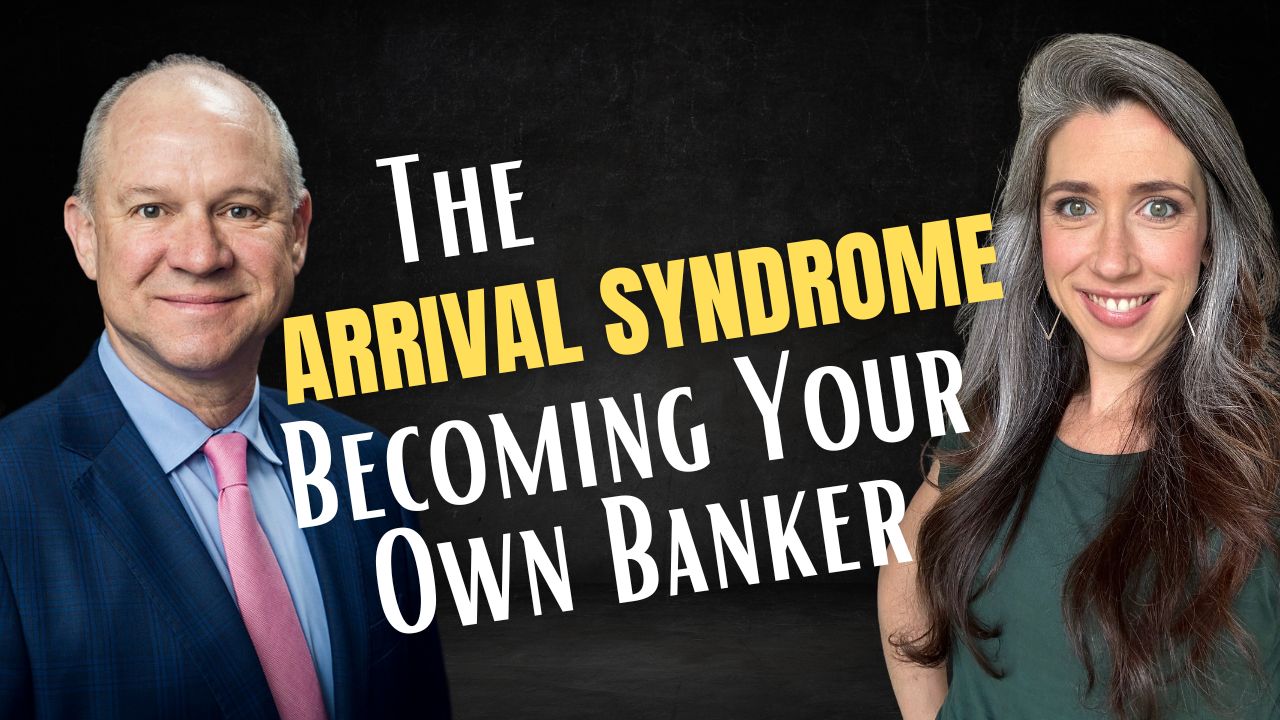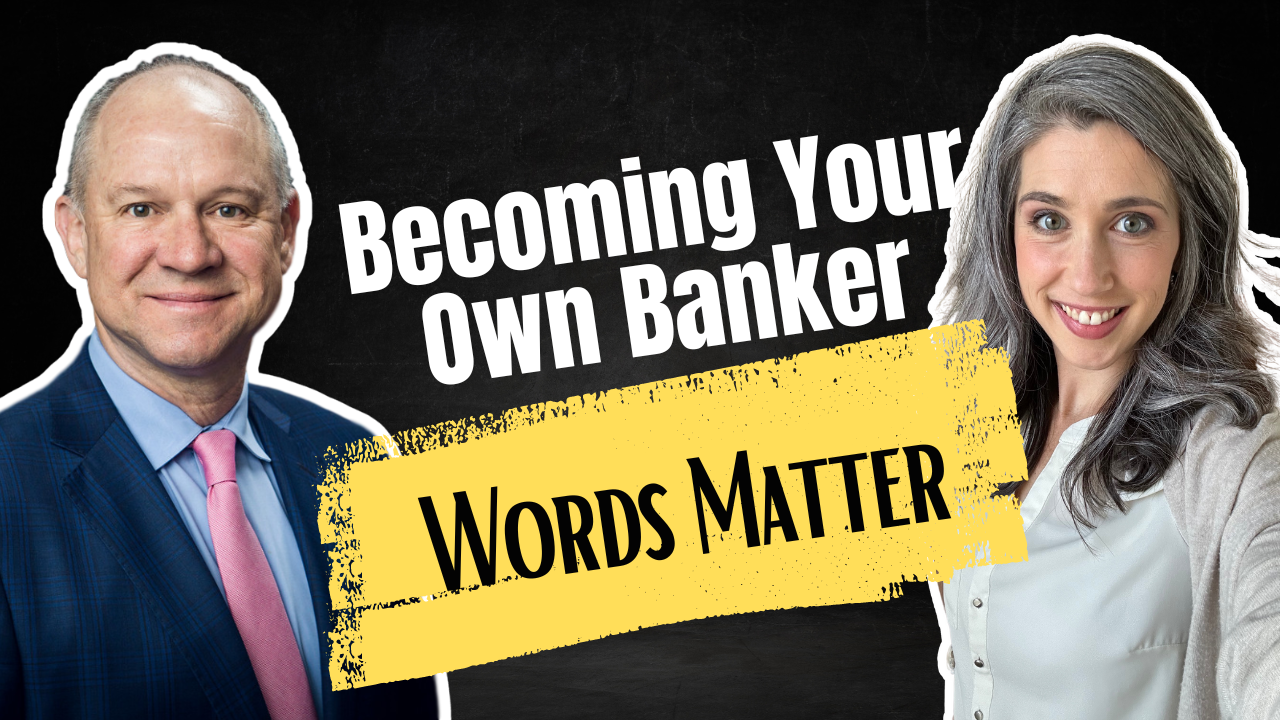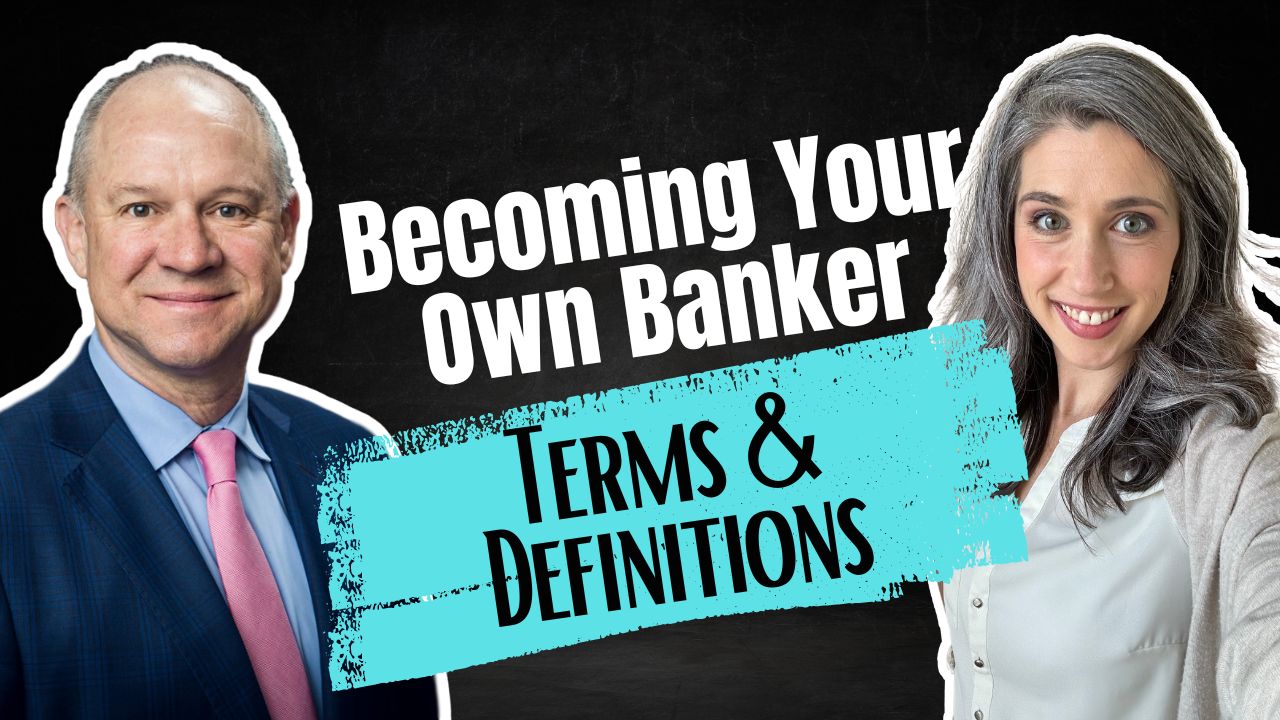
Becoming Your Own Banker, Part 10: Arrival Syndrome
Are you ready to transform your financial growth mindset? In today’s enlightening episode, we dive deep into Nelson Nash’s book, Becoming Your Own Banker, and explore the concept of the arrival syndrome – a dangerous belief that we’ve reached the pinnacle of knowledge and understanding. We’ll discuss the fixed mindset versus the growth mindset, and how these mindsets play a crucial role in the world of Infinite Banking.
Hear our recommendations on defeating the Arrival Syndrome, embracing continuous learning, and making the most of our services at The Money Advantage to create a tailored financial plan. This episode will challenge your beliefs and reveal new strategies to keep and control more of your hard-earned money. Don’t miss out!
Podcast: Play in new window | Download (Duration: 39:55 — 45.7MB)
Subscribe: Apple Podcasts | Spotify | Android | Pandora | RSS | More
Table of Contents
The Arrival Syndrome
Arrival Syndrome, which Nelson Nash discusses in his book, Becoming Your Own Banker, is detrimental to wealth building.
[7:15] “If we think we’ve arrived, if we think we know everything, then we have this arrival syndrome, which is the illusion of knowledge that shortcuts us and makes us stop growing.”
If you believe you have arrived—at success, at financial freedom, at peace—you give yourself permission to stop trying. Doing so prevents any future growth, and that’s a dangerous place to be. For example, people who experience large windfalls often see a large sum and believe that they’ve made it. They think they’ll be set for life because it’s the most money they’ve ever seen. So they stop working and squander money, only to realize that money was finite after all.
You can also think of it this way—what if Steve Jobs had stopped at the Macintosh? What if Henry Ford stopped after building his first gasoline engine? These were valuable inventions, and neither of them could guess just how far their work would go, and yet they kept inventing and growing. Their growth mindsets and curiosity allowed them to keep pushing the envelope, keep inventing, and do the unthinkable.
[7:55] “Arrival syndrome is equal to arrogance, and arrogant people breed ignorance. Ignorance is about not even knowing something. It’s not that you can’t know it, [it’s that you haven’t been exposed to it].”
Carol Dweck and the Fixed Mindset
A similar idea comes from Carol Dweck, author of “Mindset: The New Psychology of Success.” Rather than arrival syndrome, she talks about having a “fixed mindset.” Those with a fixed mindset believe that intelligence is static, desire to look smart, and may even avoid things that seem challenging. By having a fixed mindset, you’re destined to plateau and have your worldview confirmed.
If you look at the world through a fixed mindset, you’re experiencing arrival syndrome. You don’t feel like you have anything left to learn or do; you don’t have to exert yourself or expend effort, and you’re locked in. While you may be perfectly fine in this state, you’ll never strive for anything greater. The possible becomes impossible because there is no room or desire for growth.
[12:55] “Whereas a growth mindset recognizes that we all have the capacity to continue growing. There’s always more growth potential beyond what we already know, and we have to be humble… in order to have a growth mindset.”
If you can switch your thinking around, the impossible becomes possible with effort, intention, and practice. There’s no guarantee that things will be easy, however, you create new possibilities for yourself and your family every day. Making more money is possible, getting out of a bad spot is possible, generational wealth is possible—and an infinite number of things you can’t even imagine yet. IBC is a part of this world of possibility because it requires a growth mindset to unlock its true value.
Arrival Syndrome and IBC
The common pitfall we see is when someone discovers IBC there’s a chance they reach arrival syndrome themselves. Not only is this true for people who want to use it, but it’s also true for financial professionals. They believe that after reading up on IBC, they’ve learned everything they need to, so further education or communities that might support growth seem unnecessary. And yet, there’s so much to learn. People don’t know what they don’t know. And even if you do dedicate years to learning about IBC, there’s new stuff to discover constantly.
[34:15] “There’s a lot of people in this industry that I believe have actually not fought off the arrival syndrome yet.”
Within IBC spaces, you’ll find that advisors who have been in the business for decades are constantly seeking new wisdom and discovering new ways to help their clients. These growth-oriented people are a good fit if you yourself are growth oriented. And that’s the secret—you have to adopt a willingness to learn, too.
Book A Strategy Call
Do you want to coordinate your finances so that everything works together to improve your life today, accelerate time and money freedom, and leave the greatest legacy? We can help! Book an Introductory Call with our team today https://themoneyadvantage.com/calendar/, and find out how Privatized Banking, alternative investments, or cash flow strategies can help you accomplish your goals better and faster. That being said, if you want to find out more about how Privatized Banking gives you the most safety, liquidity, and growth… plus boosts your investment returns, and guarantees a legacy, go to https://privatizedbankingsecrets.com/freeguide to learn more.
Becoming Your Own Banker, Part 29: Words Matter
Ever felt like financial jargon was designed to confuse rather than clarify? Join us as we navigate the labyrinth of financial terminology, particularly within the infinite banking sphere. It’s not just about learning by rote; it’s about cementing a rock-solid financial strategy based on clear, precise language. By dissecting common misconceptions, we aim to transform…
Read MoreBecoming Your Own Banker, Part 28: Infinite Banking Definitions
Have you ever felt like you’re on a financial hamster wheel, constantly spinning but never gaining traction? Join us as we unpack the epilogue and glossary of Nelson Nash’s “Becoming Your Own Banker.” It’s a journey through the intricate philosophy of IBC, as we cover Infinite Banking definitions that shows how effective money management can…
Read More


